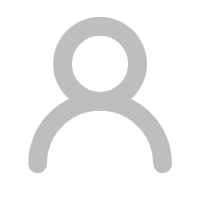
 220个常用英语单词带中文翻译
220个常用英语单词带中文翻译  2024-12-02 22:58:29
2024-12-02 22:58:29
 提问者: 未知
提问者: 未知
 1 the [ðə, ði:] art.这,那 ad.[用于比较级;**前]2 be [bi:,bi] aux. v.(am,**,are之原型) vi.是;在3 of [əv, ə, ɔv] prep.…的;由…制成的;关由于4 and [ənd, ænd] conj.和;那么;然后;而且5 a [ei, ə, æn, ən] art.一(个);任何一(个);每一(个)6 to [tu:, tu...
1 the [ðə, ði:] art.这,那 ad.[用于比较级;**前]2 be [bi:,bi] aux. v.(am,**,are之原型) vi.是;在3 of [əv, ə, ɔv] prep.…的;由…制成的;关由于4 and [ənd, ænd] conj.和;那么;然后;而且5 a [ei, ə, æn, ən] art.一(个);任何一(个);每一(个)6 to [tu:, tu... 搜集英语单词
搜集英语单词  2024-12-02 19:54:52
2024-12-02 19:54:52
 提问者: 未知
提问者: 未知
 (1)af afgan 阿富汗 al albania 阿尔巴尼亚 ad andorra 安道尔 ao angola 安哥拉 ai angola 安圭拉 aq antarctica 南极洲 ag ntigua and barbuda 安提瓜和巴布达 ar argentina 阿根廷 am armenia 亚美尼亚 aw aruba 阿鲁巴 au australia 澳大利亚 at austria 奥...
(1)af afgan 阿富汗 al albania 阿尔巴尼亚 ad andorra 安道尔 ao angola 安哥拉 ai angola 安圭拉 aq antarctica 南极洲 ag ntigua and barbuda 安提瓜和巴布达 ar argentina 阿根廷 am armenia 亚美尼亚 aw aruba 阿鲁巴 au australia 澳大利亚 at austria 奥... 动词变名词的规则(英语)
动词变名词的规则(英语)  2024-12-02 19:30:17
2024-12-02 19:30:17
 提问者: 未知
提问者: 未知
 1、加-ment adjust—adjustment 调整 develop—development发展 improve—improvement改善 2、加-er(or/r) design—designer设计师 sing—singer歌手 direct—director导演 3、加-(t)ion 或去e加-(t)ion 或变e为a加-tion direct—direction方向 connect—...
1、加-ment adjust—adjustment 调整 develop—development发展 improve—improvement改善 2、加-er(or/r) design—designer设计师 sing—singer歌手 direct—director导演 3、加-(t)ion 或去e加-(t)ion 或变e为a加-tion direct—direction方向 connect—... 英语高手请进!英语的冠词和数词选择题!!谢谢!!
英语高手请进!英语的冠词和数词选择题!!谢谢!!  2024-12-02 16:21:45
2024-12-02 16:21:45
 提问者: 未知
提问者: 未知
 the report found that_11-year-old boys and girls liked ice-cream. a.two-third of b.two-third c.two-thirds of d.two-thirds 选c。报告发现,三分之二的11岁男生和女生喜欢冰淇淋。one third 三分之一 two-thirds三分之二。分子用基数词,分母用序数词。当分子大于一时...
the report found that_11-year-old boys and girls liked ice-cream. a.two-third of b.two-third c.two-thirds of d.two-thirds 选c。报告发现,三分之二的11岁男生和女生喜欢冰淇淋。one third 三分之一 two-thirds三分之二。分子用基数词,分母用序数词。当分子大于一时... 准高三英语不是很好,应该啃单词书语法书还是看英语剧?
准高三英语不是很好,应该啃单词书语法书还是看英语剧?  2024-12-02 14:42:15
2024-12-02 14:42:15
 提问者: 未知
提问者: 未知
 语文、数学、文综/理综都是你要去权衡的,因此我们 其实并没有太多的时间耗费在英语学习上面。...如果说单词是基石,那么语法就是框架,两者结合才能搭建英语学习的“大厦”。...
语文、数学、文综/理综都是你要去权衡的,因此我们 其实并没有太多的时间耗费在英语学习上面。...如果说单词是基石,那么语法就是框架,两者结合才能搭建英语学习的“大厦”。... 巧记英语单词5000
巧记英语单词5000  2024-12-02 09:59:47
2024-12-02 09:59:47
 提问者: 未知
提问者: 未知
 单词是构成语言的三大要素之一,是语言的“建筑材料”,是构建英语知识大厦的基石。在整个英语学习过程中,单词学习的任务是最繁重的。单词掌握多少和熟练程度直接影响运用语言表达思想的准确性,单词量的多少也直接影响着我们的各方面的能力。那么,如何才能简单有效的学习英语单词呢?方法...
单词是构成语言的三大要素之一,是语言的“建筑材料”,是构建英语知识大厦的基石。在整个英语学习过程中,单词学习的任务是最繁重的。单词掌握多少和熟练程度直接影响运用语言表达思想的准确性,单词量的多少也直接影响着我们的各方面的能力。那么,如何才能简单有效的学习英语单词呢?方法... 急需30个风景名胜的英语单词~
急需30个风景名胜的英语单词~  2024-12-02 18:19:08
2024-12-02 18:19:08
 提问者: 未知
提问者: 未知
 1. the big wild goose pagoda 塔 2. the small wild pagoda 小雁塔 3.the bell tower 钟楼 4.the banpo museum 半物馆 5.the xingjiao temple 兴教寺 6.the great mosque 寺 7.thedeep fragrance p**ilion xingqinggong park 兴庆宫...
1. the big wild goose pagoda 塔 2. the small wild pagoda 小雁塔 3.the bell tower 钟楼 4.the banpo museum 半物馆 5.the xingjiao temple 兴教寺 6.the great mosque 寺 7.thedeep fragrance p**ilion xingqinggong park 兴庆宫... who作主语,谓语动词用单数还是复数
who作主语,谓语动词用单数还是复数  2024-12-02 06:34:23
2024-12-02 06:34:23
 提问者: 未知
提问者: 未知
 who作主语,谓语动词用单数还是复数视情况而定。(一)who作疑问代词,如果说话人确信回答中要用复数主语(尤其是问句中的某些词语表明回答中要用复数主语时),则在 who 之后可以采用动词的复数形式: 1.who are to blame?(确信主语涉及两个或两个以上的人)该怪谁呢?2.who h**e not ...
who作主语,谓语动词用单数还是复数视情况而定。(一)who作疑问代词,如果说话人确信回答中要用复数主语(尤其是问句中的某些词语表明回答中要用复数主语时),则在 who 之后可以采用动词的复数形式: 1.who are to blame?(确信主语涉及两个或两个以上的人)该怪谁呢?2.who h**e not ... 求数学+几何英文+中文常用单词
求数学+几何英文+中文常用单词  2024-12-02 19:17:45
2024-12-02 19:17:45
 提问者: 未知
提问者: 未知
 rt含义为“如题”,为中文汉语拼音ruti的首字母缩写。当今很多帖子,如在wow吧经常看见 通常用在邮件或论坛发贴中, 一个常见的用法是: 当标题已经完全表述了需要表达的内容, 人们在正文中仅写rt两字,告诉读者要说的在标题中说完了。 rt也可以视作为“如图”,为汉字拼音“rutu”的首字母缩写。 通常用在论坛或贴吧, 表示图片表达作者要说明的内容,但不常用。二释义2 rt表示ru...
rt含义为“如题”,为中文汉语拼音ruti的首字母缩写。当今很多帖子,如在wow吧经常看见 通常用在邮件或论坛发贴中, 一个常见的用法是: 当标题已经完全表述了需要表达的内容, 人们在正文中仅写rt两字,告诉读者要说的在标题中说完了。 rt也可以视作为“如图”,为汉字拼音“rutu”的首字母缩写。 通常用在论坛或贴吧, 表示图片表达作者要说明的内容,但不常用。二释义2 rt表示ru... 数学名词谜语
数学名词谜语  2024-12-02 19:43:23
2024-12-02 19:43:23
 提问者: 未知
提问者: 未知
 停战 (和)夏周之间 (商)储蓄 (积)我先走 (不等)孕妇临产 (分子)汾水长流,好女长游(分子)再见了,妈妈 (分母)两边清点 (分数)点硬币 (分数)北 (反比)对抗赛 (反比)附则 ...
停战 (和)夏周之间 (商)储蓄 (积)我先走 (不等)孕妇临产 (分子)汾水长流,好女长游(分子)再见了,妈妈 (分母)两边清点 (分数)点硬币 (分数)北 (反比)对抗赛 (反比)附则 ...特别声明:本网为公益网站,人人都可发布,所有内容为会员自行上传发布",本站不承担任何法律责任,如内容有该作者著作权或违规内容,请联系我们清空删除。